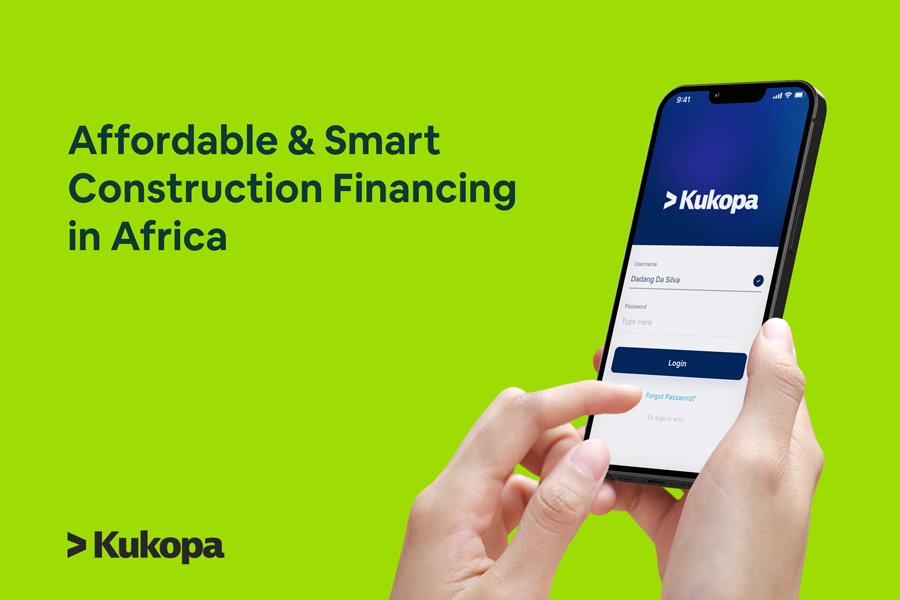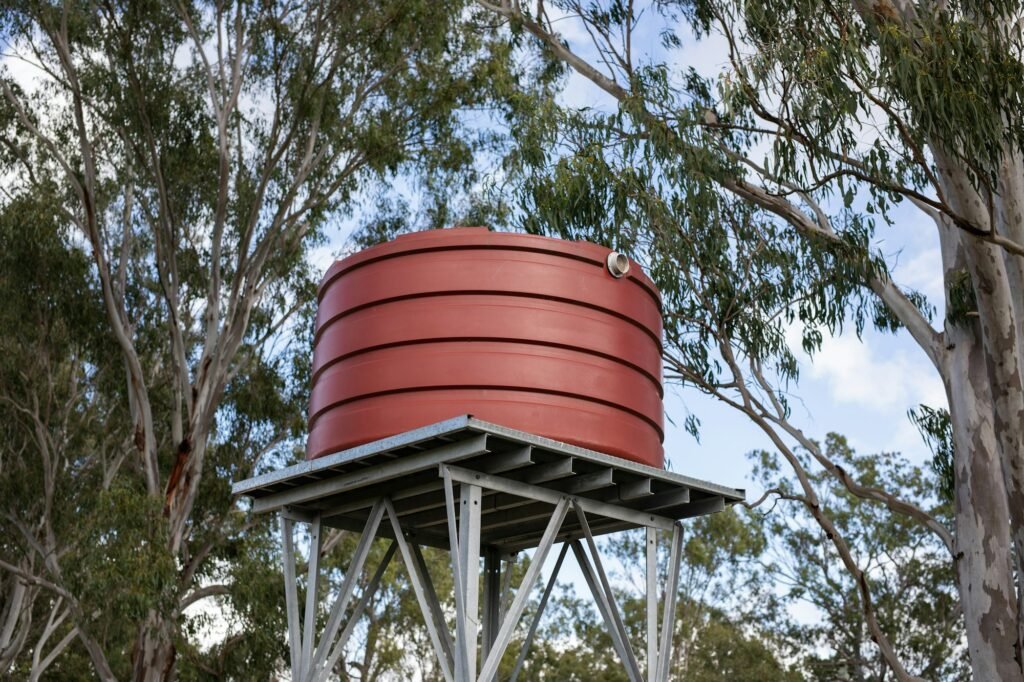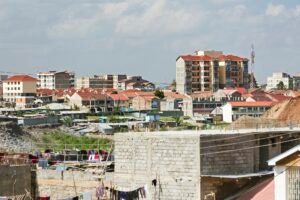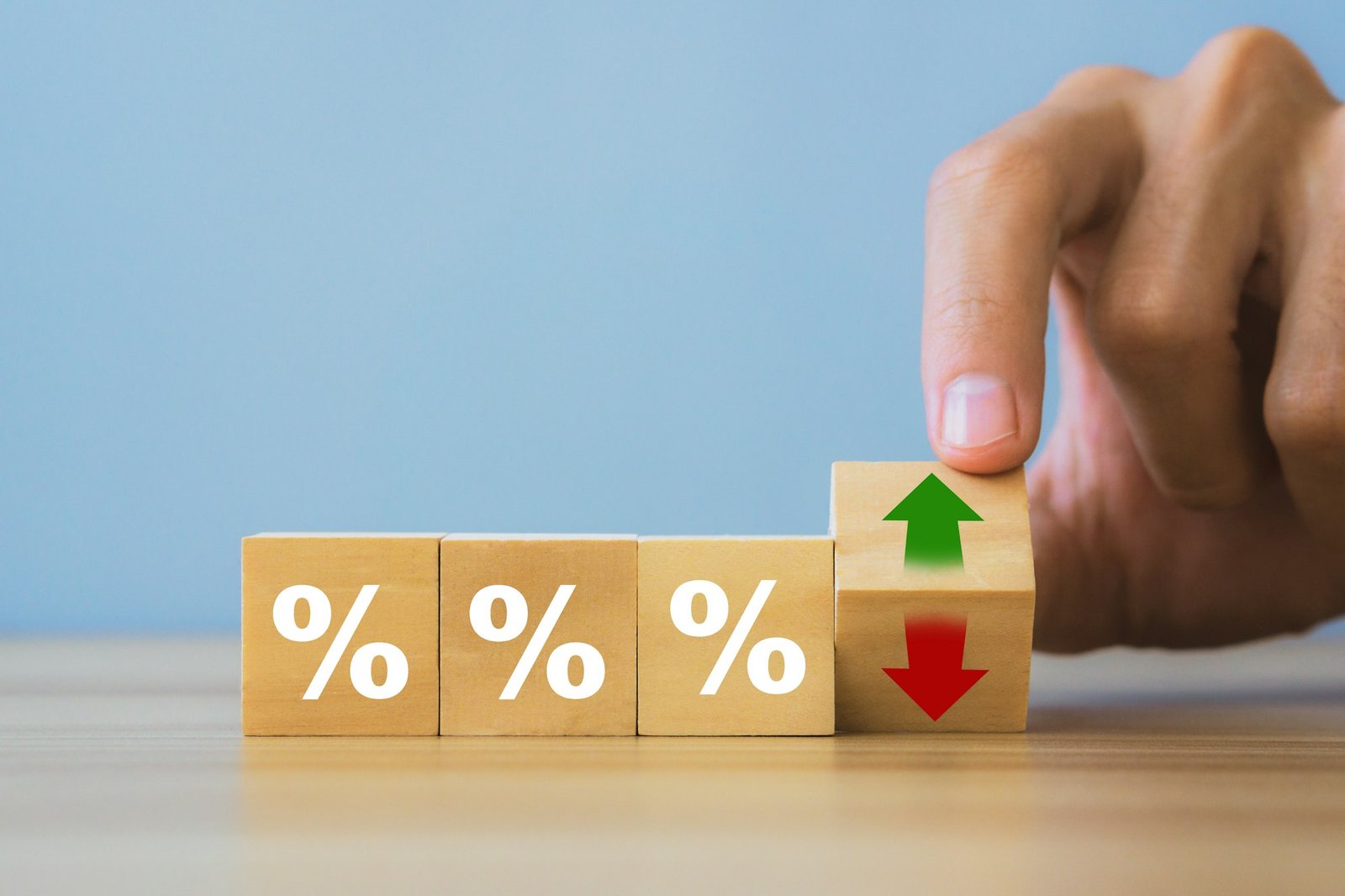Introduction
Kukopa stands at the forefront of an essential mission: bridging the housing finance gap in Africa by providing accessible financing to underserved communities. In Sub-Saharan Africa, millions of individuals, particularly those working in the informal sector, lack access to traditional banking services and financing options that could improve their living conditions. For these individuals, securing funds to enhance their homes remains a significant barrier, contributing to the continent’s severe housing shortage.
Kukopa’s model is a transformative approach to housing finance, uniquely designed to serve low-income families and communities traditionally excluded from formal financial systems. With innovative solutions that leverage mobile money and community-based lending, Kukopa not only enables access to finance but empowers these communities to build safer, healthier, and more resilient homes. This mission aligns with broader goals of economic growth, social equity, and climate adaptation by providing people with the means to improve their homes sustainably.
This article will explore the core elements of Kukopa’s approach—its innovative use of mobile money data for credit assessment, focus on community-based lending, scalable technology platform, and commitment to impact-driven growth. Through this model, Kukopa aims to redefine housing finance in Africa, building a bridge to better living standards and fostering resilience in the face of economic and environmental challenges.

Understanding the Housing Finance Gap in Africa
In Africa, particularly in rapidly urbanizing countries like Kenya, the need for affordable and accessible housing finance is vast and urgent. The continent faces a severe housing deficit, with millions of individuals living in substandard conditions. For instance, Kenya alone has a housing shortage of over 2 million units, with an estimated 78% of the population residing in inadequate homes. The problem isn’t solely the scarcity of housing; it’s also the lack of financing options tailored to the needs and realities of low-income households, especially those operating outside formal employment structures.
The housing finance gap refers to the discrepancy between the demand for housing finance and the limited availability of suitable financial products for the majority of African populations.
This gap is exacerbated by several key factors:
Economic Challenges: Many African economies are informal, with a significant portion of the population earning steady incomes from small-scale trades, farming, or self-employment. However, due to a lack of formal employment records or established credit histories, traditional banks often consider these individuals ineligible for housing loans.
Inadequate Financial Infrastructure: Traditional mortgage systems in Africa are generally underdeveloped, with banks focusing their lending on urban, middle- to high-income customers who have formal employment and credit histories. This exclusionary approach overlooks the majority of the population, particularly in rural and peri-urban areas, where income can be inconsistent or seasonal, but often steady and reliable over time.
High Cost of Credit: Even where financial products exist, interest rates are often prohibitively high. The high cost of credit reflects the risks perceived by financial institutions when lending to individuals without formal financial histories. For those who qualify for loans, this high interest can result in unmanageable debt, deterring many from seeking financing at all.
Regulatory and Policy Constraints: In some cases, regulatory frameworks restrict innovation in financial products, making it difficult for alternative lenders to establish new models that could cater to the informal sector. Moreover, inconsistent government policies and inadequate support for affordable housing finance further widen the housing gap.
This situation has profound social and economic implications. Inadequate housing impacts health, safety, and productivity, trapping many families in a cycle of poverty. As housing is a foundational need that affects other aspects of life, such as education, health, and economic stability, closing this finance gap is essential to creating a more equitable society. Kukopa recognizes this need and is committed to transforming housing finance in Africa by addressing these challenges head-on, crafting solutions that cater to the unique needs of informal sector workers.
Kukopa’s Target Market: The Informal Sector
Kukopa’s primary focus is on serving the informal sector, a demographic that, despite contributing significantly to Africa’s economy, is largely overlooked by traditional financial institutions. The informal sector includes workers in occupations such as small-scale farming, local trade, construction, and other forms of self-employment. These individuals often have consistent, albeit informal, incomes but lack the official documentation and financial history banks typically require for loan approval.
Barriers Faced by the Informal Sector
Lack of Traditional Credit History: Without formal credit scores or established banking relationships, individuals in the informal sector are often seen as high-risk borrowers by conventional lenders.
Volatile and Seasonal Income: While incomes in the informal sector can be steady, they are often seasonal or fluctuating, making it difficult to meet the rigid payment schedules that traditional banks enforce.
High Cost of Borrowing: Even when loans are available, high interest rates make borrowing impractical for low-income earners who must prioritize basic living expenses.
Geographical Exclusion: Many rural and peri-urban areas lack access to physical bank branches, further isolating potential borrowers from formal financial services.
Housing Needs of the Informal Sector
For workers in the informal sector, housing improvements are often a gradual, step-by-step journey due to limited access to conventional financing and the unpredictability of their income streams. Unlike traditional mortgages that require significant down payments and long-term commitments, these individuals benefit most from smaller, more achievable upgrades that directly enhance daily life. Essential improvements such as adding a room to reduce overcrowding, reinforcing a roof for better protection, installing a water tank for reliable access to clean water, or upgrading basic sanitation facilities all contribute significantly to a family’s quality of life. Kukopa’s loan products are tailored specifically to fund these incremental upgrades, offering financing that aligns with the financial realities of low-income earners. This phased approach enables borrowers to improve their homes gradually, securing funding for one project at a time and repaying it in manageable amounts. By providing flexible, small-scale loans, Kukopa empowers families to make substantial improvements to their living conditions without incurring overwhelming debt. Over time, each completed upgrade fosters long-term stability and resilience, not only for individual households but also for entire communities. Through its focus on meeting immediate, practical housing needs in a sustainable way, Kukopa offers a transformative solution to the housing finance gap, empowering informal sector workers to create safer, healthier, and more comfortable homes.
Innovative Solutions by Kukopa
Kukopa’s approach to bridging the housing finance gap is rooted in innovative solutions that leverage technology, data, and community-based models. Here’s how Kukopa is pioneering financial inclusion in the housing sector:
1. Leveraging Mobile Money with M-Pesa Data for Credit Assessment
In Kenya and other African nations, mobile money services like M-Pesa have transformed the way people transact, especially for the unbanked. Recognizing the potential of mobile money, Kukopa utilizes M-Pesa transaction data to assess an individual’s financial habits. This method of credit assessment is particularly effective in the informal sector, where people rely heavily on mobile payments.
By analyzing months of M-Pesa statements, Kukopa can gauge income stability, spending patterns, and financial behavior—factors that are often more indicative of creditworthiness than a traditional credit score. This data-driven approach provides a “financial fingerprint” that allows Kukopa to offer loans to individuals who would otherwise be excluded from formal financial systems.
2. Community-Based Lending Models and Social Collateral
In a departure from conventional lending models, Kukopa employs a system of social collateral. Under this model, borrowers in the informal sector must secure a guarantor or co-investor from their community. These community-based guarantors essentially vouch for the borrower, creating a system of shared accountability and trust.
For example, a small-scale farmer seeking a loan to install a water tank may ask a local vendor or neighbor to act as a guarantor. This social collateral system reduces the risk for Kukopa and fosters a sense of responsibility among borrowers, as their community members are involved in their financial commitment.

3. Flexible Loan Products for Incremental Improvements
Kukopa’s loan products are uniquely designed for incremental housing upgrades. These loans allow individuals to improve their homes step by step—whether it’s adding a room, improving sanitation, or installing renewable energy solutions like solar panels or bio-digesters. These upgrades not only enhance living conditions but also provide long-term benefits, such as increased property value and improved health and safety.
4. Integration with Local Supply Chains
Kukopa’s financing model extends beyond loan disbursement by connecting borrowers with trusted local suppliers and contractors. This integration ensures that borrowers can access quality materials and services for their home improvements, creating an ecosystem that supports the entire housing improvement process. This approach also fosters local economic growth by driving business to community suppliers and tradespeople.
Building a Resilient and Scalable Technology Platform
Kukopa’s success in scaling its housing finance solutions relies heavily on its digital platform and advanced automation processes. Here’s how they’re building a foundation for scalable growth:
Automation and Scalability Goals: Kukopa has set ambitious targets to process thousands of loan applications per day, enabled by automation. Automated processes streamline loan application, approval, and disbursement, allowing Kukopa to expand quickly without the need for a large physical footprint.
Continuous System Evolution with Data: Each transaction contributes to a feedback loop, enhancing Kukopa’s algorithms and improving accuracy in assessing borrower risk. This data-driven approach allows Kukopa to refine its credit assessment and fraud detection mechanisms continually.
Digital-Only Model: By avoiding brick-and-mortar branches, Kukopa can extend its services to remote areas cost-effectively, leveraging mobile technology to reach clients across Africa.
Mitigating Risks in the Informal Sector
Operating in the informal sector presents unique risks. Kukopa addresses these through several strategies:
- Fraud Prevention: Kukopa’s technology platform incorporates advanced fraud detection mechanisms, continually evolving to address new risks.
- Collections Strategy: Kukopa employs a multi-layered collections strategy, from automated reminders to field visits, ensuring repayment and maintaining healthy cash flow.
- Economic Resilience: Kukopa’s loan products focus on essential home improvements, making them valuable even in economic downturns, helping borrowers prioritize repayment.
Impact of Micro-Financing on African Communities
Kukopa’s innovative approach to housing finance is significantly enhancing living standards across African communities. By offering tailored financing for incremental home improvements, such as adding rooms, reinforcing roofs, and installing essential amenities, Kukopa enables families to enhance their living conditions without incurring overwhelming debt. This method aligns with the financial realities of many low-income households, allowing them to undertake manageable upgrades that collectively lead to substantial improvements in quality of life.

Beyond individual homes, Kukopa’s financing options for water tanks, bio-digesters, and energy-efficient solutions contribute to broader community resilience. Access to clean water remains a critical issue in many African regions; by facilitating the installation of water tanks, Kukopa helps ensure reliable water supply, reducing the time and effort spent on water collection and improving overall health outcomes. Bio-digesters offer a sustainable waste management solution, converting organic waste into biogas for cooking, thereby reducing reliance on wood and charcoal. This transition not only mitigates deforestation but also decreases indoor air pollution, which is responsible for approximately 500,000 premature deaths annually in Africa due to respiratory illnesses.
Energy-efficient improvements, such as solar power installations, provide households with reliable electricity, enabling activities like studying after dark and powering small appliances. In regions where 600 million people still lack access to electricity, these upgrades are transformative, fostering educational and economic opportunities. Collectively, these interventions not only elevate individual living standards but also strengthen community resilience against environmental challenges, promoting sustainable development and improved health outcomes across African communities.
Why Investors Work with Kukopa?
Investing in Kukopa presents a compelling opportunity for impact investors aiming to achieve both financial returns and substantial social impact. Kukopa’s innovative approach to housing finance directly addresses the significant housing deficit in Africa, particularly among underserved communities in the informal sector. By providing tailored financing solutions for incremental home improvements, Kukopa enables low-income households to enhance their living conditions sustainably.
Kukopa’s business model aligns seamlessly with Environmental, Social, and Governance (ESG) investment principles. The company’s focus on sustainable housing solutions contributes to environmental sustainability by promoting energy-efficient upgrades and climate-resilient infrastructure. Socially, Kukopa empowers marginalized communities by improving access to adequate housing, thereby enhancing health, education, and economic outcomes. Governance-wise, Kukopa’s transparent and inclusive lending practices foster trust and accountability within the communities it serves.
Furthermore, Kukopa’s mission is closely aligned with the United Nations Sustainable Development Goals (SDGs), particularly:
SDG 1: No Poverty – By providing affordable financing for home improvements, Kukopa helps reduce poverty levels among low-income families.
SDG 6: Clean Water and Sanitation – Financing options for water tanks and sanitation facilities improve access to clean water and hygiene.
SDG 7: Affordable and Clean Energy – Supporting energy-efficient solutions like solar power installations promotes access to clean energy.
SDG 11: Sustainable Cities and Communities – Enhancing housing quality contributes to the development of sustainable and resilient communities.
The demand for ESG-compliant investments is on the rise, with assets under management in ESG funds reaching $35 trillion in 2020, up from $30.6 trillion in 2018.
This trend indicates a growing investor appetite for opportunities that deliver both financial returns and positive societal impact.
Kukopa’s clear growth strategy and ambitious automation goals further enhance its investment appeal. The company’s technology-driven platform is designed to scale efficiently, aiming to process a substantial number of loan applications monthly. This scalability positions Kukopa to meet the vast housing needs across Africa effectively.
Future Outlook
As Kukopa continues to grow, the company’s future strategy focuses on sustainable housing solutions, scalable models, and collaboration with international organizations to maximize impact and extend its reach.
Sustainable Housing Solutions
Kukopa’s approach to sustainable housing integrates green technologies and eco-friendly practices into its financing offerings. With climate change impacting African communities disproportionately, the need for environmentally resilient housing is more urgent than ever. Kukopa plans to expand its support for energy-efficient solutions, such as solar power systems and bio-digesters, which help reduce energy costs and decrease carbon footprints for low-income households. This not only aligns with global Environmental, Social, and Governance (ESG) goals but also empowers families to adopt long-term sustainable practices. Further innovations may include financing for rainwater harvesting systems and eco-insulation, which enhance resource efficiency and climate resilience. As demand for sustainable solutions rises, Kukopa’s commitment to green financing positions it as a leader in eco-conscious housing finance across the continent.
Scalability of Successful Models
Kukopa’s success in Kenya provides a replicable model for other emerging markets facing similar housing finance challenges. By fine-tuning its technology-driven approach and community-based lending model, Kukopa aims to expand its operations across Sub-Saharan Africa and potentially other emerging markets. The platform’s reliance on digital solutions, such as mobile money integration and automated loan processing, allows Kukopa to scale efficiently without requiring significant infrastructure. This scalable approach could be customized to meet local needs in different regions, adapting to cultural, economic, and regulatory environments. As the demand for affordable and flexible housing finance solutions grows globally, Kukopa’s model offers a blueprint for sustainable expansion and positive social impact in diverse markets.
Role of International Organizations
Collaboration with international organizations, such as the International Finance Corporation (IFC), the African Development Bank (AfDB), and the World Bank, plays a critical role in Kukopa’s future growth and impact. These entities have been instrumental in supporting housing finance initiatives through funding, technical assistance, and policy advocacy. For instance, the IFC has a strong track record of providing financial and advisory support to institutions that promote affordable housing in emerging markets. Partnerships with such organizations could enable Kukopa to access additional capital, strengthen regulatory compliance, and leverage international expertise to refine its lending model. Moreover, international organizations can help Kukopa engage with local governments to create an enabling environment for affordable housing finance, from regulatory adjustments to incentives for sustainable building practices. Through these partnerships, Kukopa can accelerate its impact and foster a more inclusive housing finance ecosystem across Africa.
In summary, Kukopa’s future outlook is centered on scaling sustainable housing finance solutions, replicating its model in other markets, and fostering partnerships with global organizations. These strategies position Kukopa to drive systemic change in housing finance, making a tangible difference in underserved communities across Africa and beyond.








